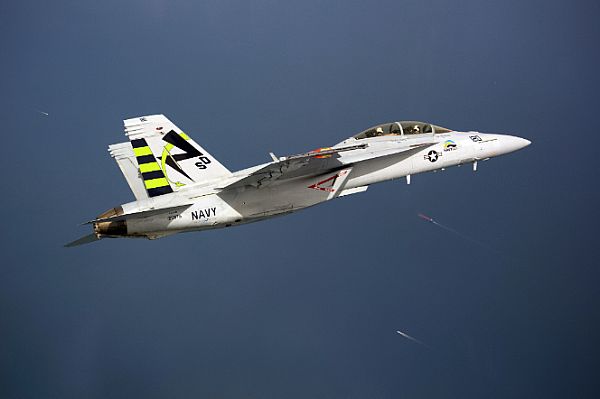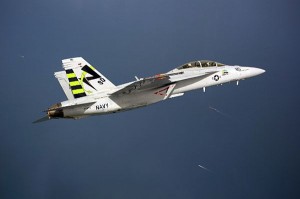
Group of 38 Senators Oppose Restrictions on DoD’s Biofuels Program
Earlier this year, the Armed Services Committees in both the House and Senate passed their versions of the National Defense Authorization Act (NDAA) of 2013, which has not yet been passed into law by Congress, but may be considered in the coming weeks. The NDAA is the primary piece of legislation that decides how the Department of Defense will spend its money and it also sets policy direction for the military.
Included in both versions was language that prohibits DoD from the “production or purchase” of any alternative fuels that may exceed the cost of traditional fossil fuels. This language was aimed at killing DoD’s nascent biofuels program, which was designed to develop alternative sources of fuel for military operations.
The Navy has been most aggressive in this regard, with its “Great Green Fleet” on display in July as part of the RIMPAC exercises. The U.S. Nimitz and its airwing, Carrier Wing 11, along with three destroyers tested a 50-50 mixture of biofuel (made from used cooking oil and algae) and traditional petroleum-based marine diesel or jet fuel.
DoD is investing in alternative fuels to mitigate risk. Currently, it is entirely dependent on fossil fuels for fueling its fleets. Supply disruptions could pose dangers to a long and elaborate supply chain. Moreover, price volatility saps the Pentagon’s budget: every dollar increase in the per barrel price of oil costs DoD an additional $31 million in unbudgeted funding. In 2011, unbudgeted fuel costs totaled $2 billion, which means $2 billion that did not go to its core mission of safeguarding national security.
Despite the obvious national security imperative to develop alternatives to fossil fuels, Congress is considering a prohibition of these investments because they are costly in the short-term.
In response, according to Politico, a group of 38 Senators sent a letter on November 16 to the Senate leadership – Majority Leader Harry Reid (D-NV) and Minority Leader Mitch McConnell (R-KY) – opposing the language that restricts investments in biofuels. A link to the letter can be found here (subscription required). The Senators opposed the NDAA restrictions due to the negative impact they would have on national security.
The American Security Project agrees: developing alternative fuels will mitigate national security risks and DoD should be free to pursue all options. While biofuels will require upfront investments, costs will continue to decline as production scales-up. The Department of Energy projects that biofuels may be able to compete with fossil fuels on price as early as 2017.
However, continued cost declines are dependent on there being a market for biofuels – a market in which DoD is a major player. Therefore, DoD is in a unique position to develop an alternative fuel; an energy source that can be used to create options for military planners and reduce risk. The coming debate over the NDAA offers the opportunity to allow DoD to press forward.
To check out more of ASP’s work on Defense Energy, click here.







[…] Continuing the military biofuels program and policy stability are essential to continued private investment and growth of the advanced biofuels industry. New biorefineries are under construction in nearly every state across the country. The industry is poised to provide a bright future for both our economic and national security. Biofuels & Climate Change | Email This Post | Printer Friendly Tags: advanced biofuels, alternative energy, biofuels, DoD, economy, jobs, military biofuels, renewables […]
[…] a bipartisan group of 38 Senators sent a letter Senate Majority Leader Harry Reid and Minority Leader Mitch McConnell opposing the […]